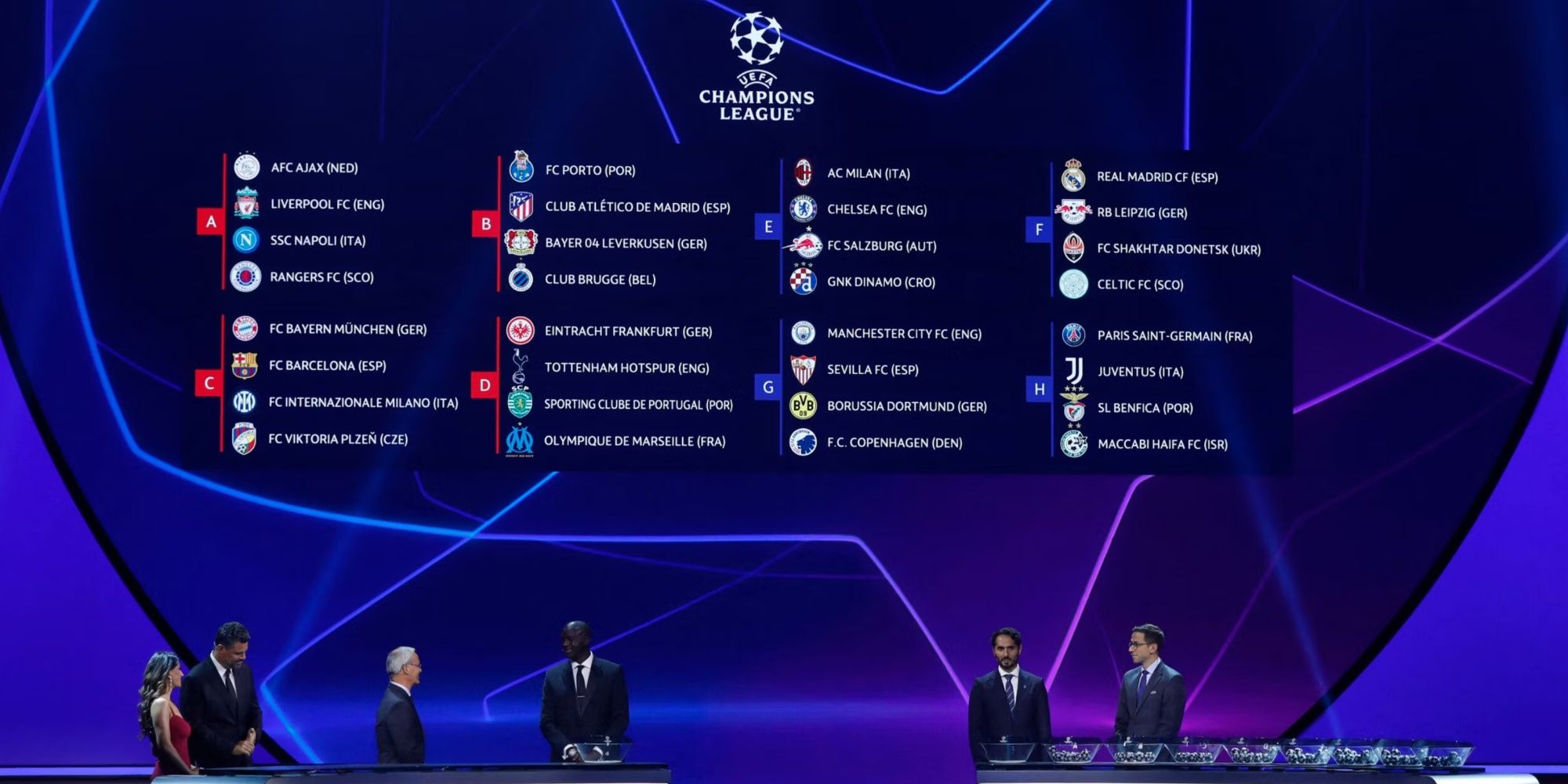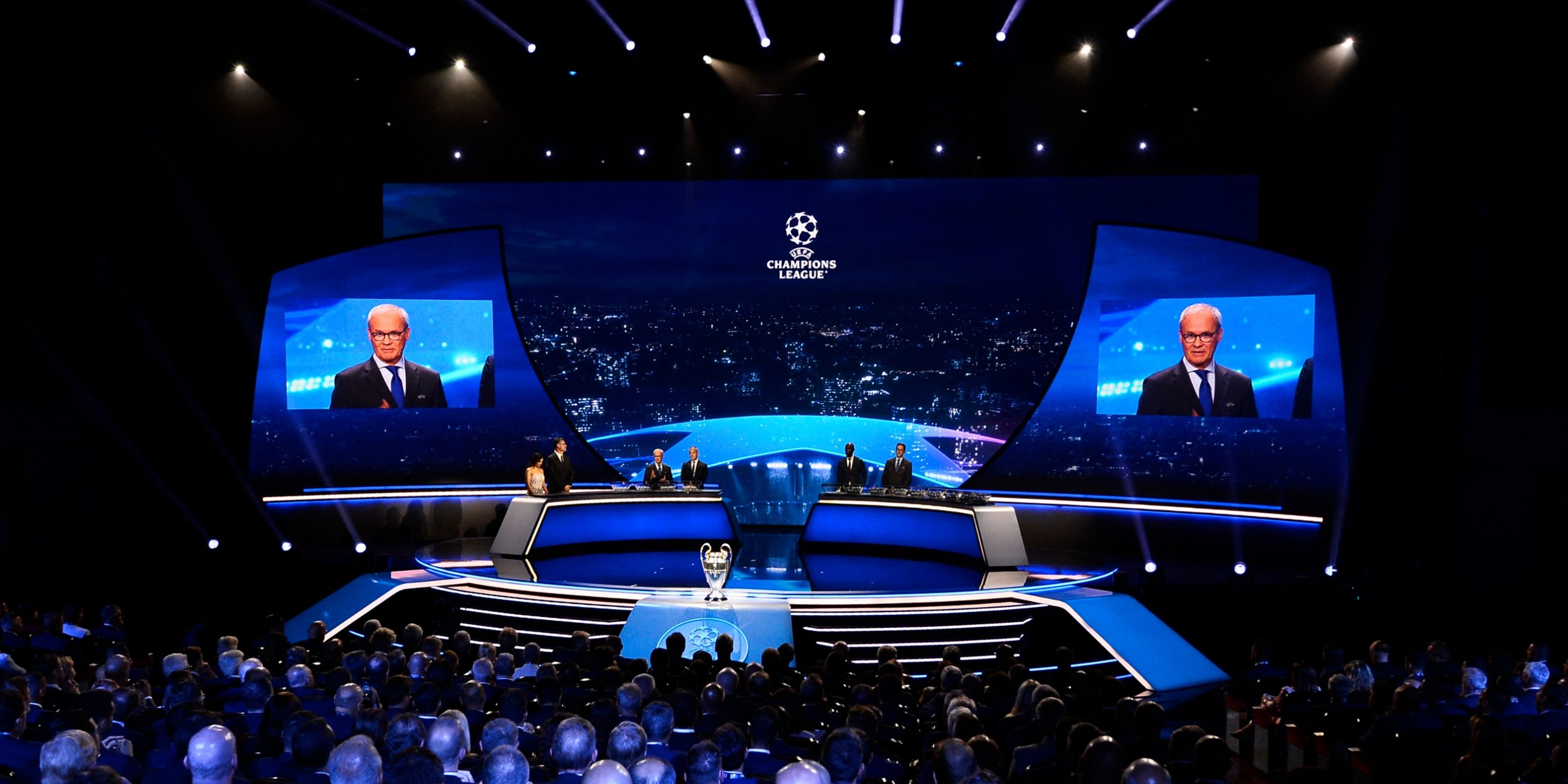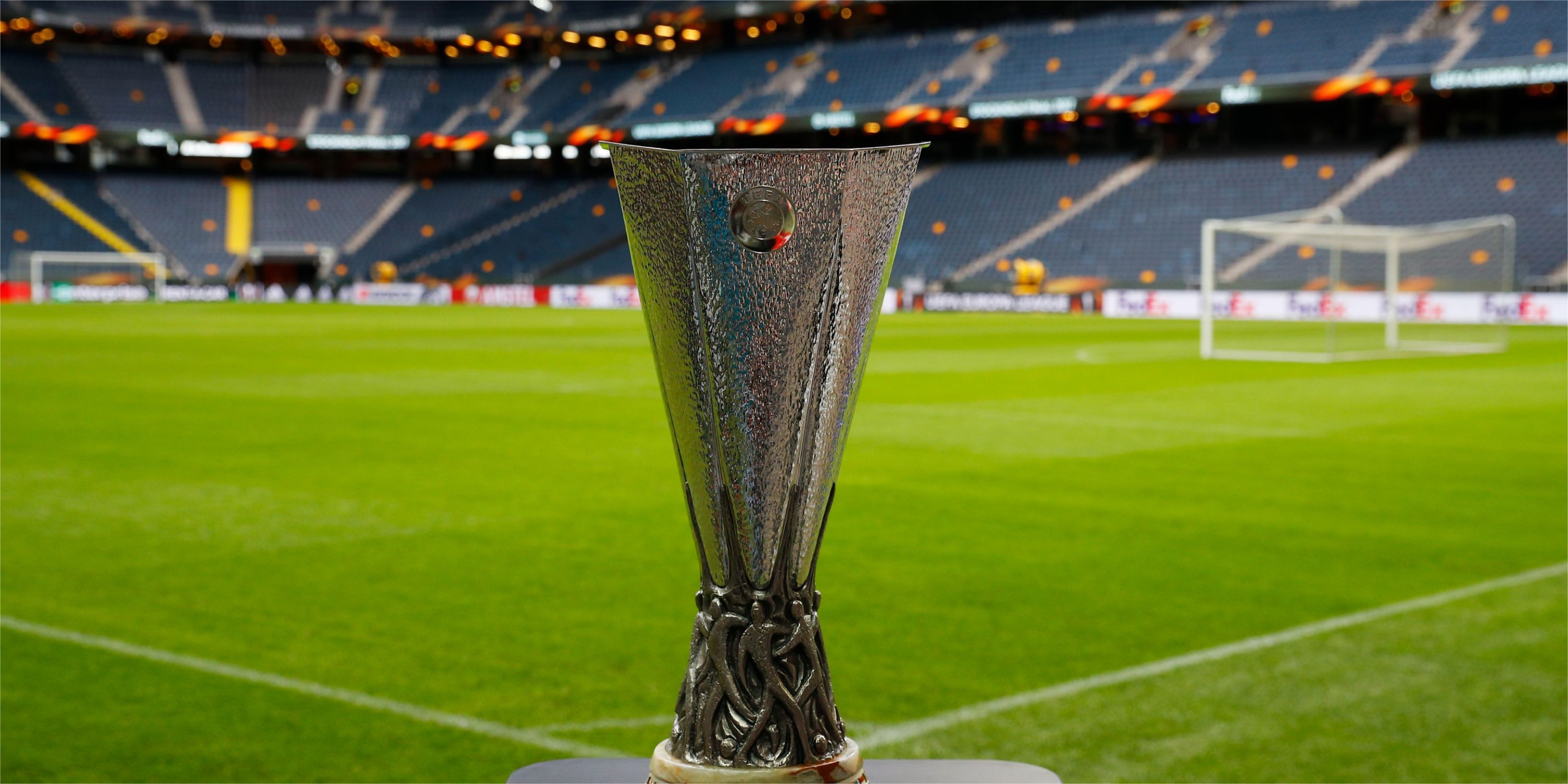Highlights
- UEFA has confirmed a new format for the Champions League in the 2024/25 season called the 'Swiss Model', which will include 36 clubs and increase the number of games from 125 to 189.
- Under the new format, all clubs will be placed in the same group and play eight group matches, with four matches at home and four away.
- The top eight teams will automatically qualify for the knockout stages, while teams in 9th-24th will enter a two-legged playoff fixture for the remaining eight places. The losers of the playoff fixture will be eliminated and will not drop down to the Europa League.
The Champions League is going to be very different come the 2024/25 season. UEFA have confirmed the new format, which will include a grand total of 36 clubs and go from 125 games to 189. It's called the 'Swiss Model' and sees all clubs placed in the same table, playing eight group matches rather than eight groups of four as is the case now.
It's the biggest European competition in the beautiful game - commonly known as the pinnacle of club football - and with current world never standing still, particularly in sport, UEFA have continuously evolved and made changes to the format of the Champions League as a means of keeping pace with wider changes in football.

Building the ultimate Champions League last 16 combined XI
GIVEMESPORT have named their ultimate Champions League XI from teams left in the last 16 - but neither Bukayo Saka nor Erling Haaland make the cut.New Champions League format
But how will it work in practice? Well, a fascinating video has emerged on social media recently, which breaks down the new format clearly and concisely. It explains how all 36 teams will be all placed into the same group and they will play eight opponents in a new league phase (formerly the group stage) - four at home and four away.
To determine each club's eight different opponents, all teams will initially be ranked into four seeding pots. Then, every side will play two opponents from each of these pots, playing one match against a team from each pot at home, and one away. As such, the likelihood of two of the competition's heavyweights meeting each other early on is boosted tenfold.
The top eight teams qualify directly for the Round of 16, while sides ranked from 9th to 24th will enter a two-legged playoff fixture for the remaining eight places. The winners will go into the knockout stages and the losers of the eight ties will crash out. Those sides that finish 24th-36th will be eliminated from all competitions - including the Europa League and Europa Conference League. The last 16, quarter-finals, semi-finals and final will remain the same as previous Champions League tournaments.
While many are perplexed by the new league format, UEFA have claimed that every match, goal and point will be crucial in a team's final position. The new system, according to UEFA, will ensure "fast-changing and unpredictable standings" and more matches between "equally-ranked" teams.
UEFA president explains new Champions League format
'UEFA are fully committed'
Explaining the decision behind the new format, UEFA President Aleksander Čeferin, ensured to let people know that the 'fundamental values of sport' are at the centre of the changes.
“UEFA has clearly shown today that we are fully committed to respecting the fundamental values of sport and to defending the key principle of open competitions, with qualification based on sporting merit, fully in line with the values and solidarity-based European sports model.
“Today’s decisions conclude an extensive consultation process during which we listened to the ideas of fans, players, coaches, national associations, clubs and leagues to name but a few, with the aim to find the best solution for the development and success of European football, both domestically and on the international club stage.
To ensure the new format from 2024/25 will deliver the best for clubs, players and fans alike, UEFA's design derived from extensive consultations with key stakeholders - and was approved on 10 May 2022. Ceferin believes they have struck a fair balance between creating a more competitive competition and generating extra revenue for competing clubs.
“We are convinced that the format chosen strikes the right balance and that it will improve the competitive balance and generate solid revenues that can be distributed to clubs, leagues and into grassroots football across our continent while increasing the appeal and popularity of our club competitions.
"I am really pleased that it was a unanimous decision of the UEFA Executive Committee, with the European Club Association, European Leagues and National Associations all agreeing with the proposal made. Another proof that European football is more united than ever. Qualification will thus remain purely based on sporting performance and the dream to participate will remain for all clubs.”
GIVEMESPORT Key Statistic: Each one of the Champions League’s top five goalscorers have played for Barcelona or Real Madrid during their career - Cristiano Ronaldo, Lionel Messi, Robert Lewandowski, Karim Benzema, Raul).
Where the extra four clubs come from
Initial qualification for Europe's top table will continue to depend on a club's final position in their previous campaign combined with the team's coefficient ranking. The controversy begins, however, with how the extra four teams will be allocated.
Slot one
One of the other slots will go to the club that finishes third in the league of the fifth-placed nation in the access list, which is determined by the UEFA association club coefficient ranking. That is currently France's Ligue 1. This is because the third and fourth nations already have their top four going into the group stage, so UEFA want the top two nations having five clubs, and the other three having four clubs.
Slot two
Another spot will be issued to a domestic champion by extending from four to five the number of clubs qualifying via the "Champions Path".
Slots three and four
Two of the four slots will go to clubs who 'achieved the best collective performance' in Europe in the previous season. Effectively, the nation's clubs who performed best in the Champions League, Europa League and Europa Conference League based on coefficient points earned. Points are earned with each win, draw and loss as well as reaching certain stages of the competition. If those rules were in place last season, England and the Netherlands would be awarded an extra slot. In fact, in four of the past five campaigns, a team in the Premier League would have received one of the additional slots meaning the club that finished fifth in the table would qualify for the Champions League.
The reason behind the Champions League changes
Usually, these decisions are down to money. UEFA make €3.5 billion every year from the Champions League but have decided they can squeeze a little more out of it. With four extra teams involved, more matches (189 instead of 125) and less chance that the most lucrative clubs miss out (more on that later), it's expected UEFA will start making €4.5 billion from the Champions League yearly.
Financial gains aside, UEFA have provided fans with three points about how the changes will be beneficial to them. Firstly, they claim that the new format - which sees leagues replace group stages - will ensure fans that more more top European matches will be available to watch - but also that said contests will take place earlier in the competition.
Improving competition between teams is the next point UEFA make, with all teams sharing the same opportunity regarding playing opponents of a similar competitive level throughout the entirety of the league phase. Lastly, UEFA have caveated the changes with the notion that every game will now count. Any result in the new league format has the potential to dramatically change a team's position, including the very last matchday, which means either winning or losing the last game of the league phase could be the difference-maker to whether a side secures automatic qualification for the last 16, entering the play-off process or being eliminated from all European competitions altogether.
Changes to the Europa League and Europa Conference League
All UEFA competitions will follow Swiss model
Both Europa League and the Europa Conference League will also adopt the Swiss Model from 2024 and increase from 32 to 36 clubs. There will be eight group matches in the Europa League but the Europa Conference League will still have six. As with the Champions League, there will be a playoff round to reach the last 16 but there won't be a drop down from the Europa League to the Europa Conference League.
Matches in the Champions League and Europa League will be played out between September and January, while the Europa Conference League matches will have a shorter time period to play their fixtures: between September and December. To enhance viewership of the lesser competitions, each of the three European club competitions will have one exclusive matchweek, with the other two competitions not being scheduled during their respective weeks.

























